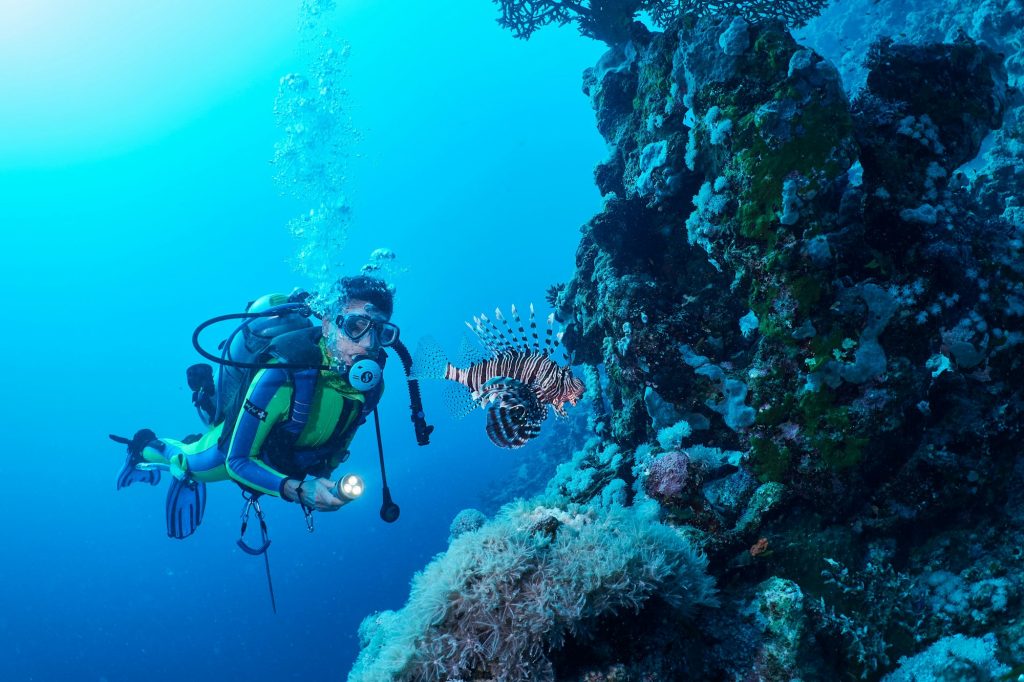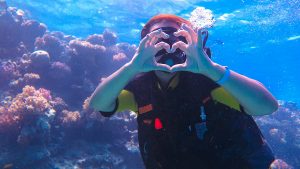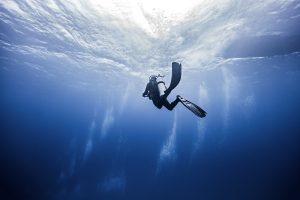
Lion fish and scuba diver in Red Sea, Marsa Alam, Egypt
Scuba is an underwater breathing apparatus designed to enable divers to remain submerged for extended periods. This is achieved using compressed air stored in tanks – usually with an enriched oxygen content known as nitrox – stored within them. Furthermore, SCUBA equipment includes buoyancy control devices which help keep neutral buoyancy throughout a dive and allow controlled descent at an appropriate pace.
Scuba diving takes place in fresh, salt, or brackish water and the ocean offers an abundance of marine environments that can be explored, from coral reefs and wrecks to tropical fish, sea turtles, sharks, manta rays and manta rays.
Many scuba dive sites are protected by national parks, with equipment used by divers meeting stringent safety and reliability requirements in order to minimize their environmental footprint and ensure their health and that of any animals encountered while diving.
Australia’s Great Barrier Reef is an idyllic location for scuba diving enthusiasts, featuring coral gardens, schools of colorful fish, large species such as manta rays and sharks – it also provides ideal training conditions due to its crystal-clear waters.
Some scuba divers are fortunate enough to swim alongside dolphins and other wild animals in their natural environments, while for others this may not be an option. This article details how equipment used by divers helps safeguard such remarkable beings.
An excellent way to begin diving is through taking a PADI Open Water course, which provides a safe, fun, and cost-effective introduction into diving. Be sure to enjoy your dives while keeping an eye out for wildlife!
Scuba diving can be an enjoyable hobby, yet unfamiliar divers may pose risks. This article answers many of the common queries new divers have about this enjoyable pastime.
Beginners looking for their first pair of scuba fins should choose flexible over rigid fins as rigid ones may cause leg cramps. Rigid fins tend to perform better against currents but may put strain on newcomers’ legs. If your budget is tight, considering second-hand markets is worthwhile; Gumtree and Craigslist in the UK and Australia as well as various Facebook groups offer listings from people selling old scuba gear at much less than its retail cost. Shopping the internet for gear is an excellent way to purchase high quality, reasonably-priced gear that allows you to explore various brands before finding what fits you best. Being patient could even get you some scuba gear at less than half its retail cost!




